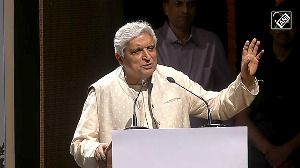
Before you file your income tax return this year, have a look at the amendments that might help you take the most possible tax benefit.
Budget 2015 brought some changes in the provisions of Income Tax Act that are required for filing tax returns pertaining to the financial year 2015-16 (which ended on March 31, 2016). Following are the nine amendments which may be relevant for your tax filing:
Transport allowance for salaried employees
A salaried employee can take the benefit of exemption available on transport allowance which is granted to an employee as conveyance between her/his home and work place.
The benefit of this allowance has been just doubled increasing the exemption to Rs 1600 per month from Rs 800 per month, i.e. an employee can now save her/his taxes on the amount of transport allowance up to Rs 19,200 per annum.
So, at the time of filing your IT return, do remember to claim the extra benefit of exemption granted.
Further, where the tax assessee is a handicapped employee, the limit shall increase to Rs 3200 per month i.e. Rs 38,400 per annum.
Sukanya Samriddhi Scheme
The central government is working hard to educate every girl child and so has issued a new scheme called Sukanya Samriddhi Scheme. If you have a girl child and have invested in this fund, you can claim the tax benefit of the deposit made in this account. This deduction shall be allowed under section 80C with the total limit of Rs 150,000.
However, you can take benefit of this section for deposits made up to two girl child only. Moreover, not only can you save taxes on the deposits made but also the interest and maturity amount are exempt from tax.
National Pension Scheme (NPS)
Section 80CCD helps to save your taxes on the contributions made in the national pension scheme. Section 80CCD, section 80C and section 80CCC collectively limit the deduction to Rs 150,000 i.e. irrespective of the amount you have contributed in the investments, you are allowed to take the benefit of the deduction up to Rs 150,000 only.
However, with the addition of section 80CCD(1B) by the Budget 2015 any individual contributing to National Pension Scheme can take the additional benefit of Rs 50,000 over and above the existing limit of Rs 150,000 i.e. the overall deduction limit is extended to Rs 200,000.
To illustrate it, suppose you have invested Rs 89,000 in NPS and Rs 150,000 in LIC, you can claim the benefit of Rs 150,000 in general but since you have made the contribution in National Pension Scheme also, the additional deduction of Rs 50,000 shall be allowed under section 80CCD(1B).
Medical expenditure on super senior citizen
One major benefit has been provided to Individuals and HUFs where medical expenditure is incurred on a member of the family being a super senior citizen.
Generally, at the age of 80 years or above, the medical expenses become huge and frequent giving extra burden on the budget of the family. To give a sigh of relief, the amount expended on medical fitness shall be allowed as a deduction to the maximum of Rs 30,000 provided the benefit of insurance premium has not been taken on such person. This tax benefit is available under section 80D with an overall limit of Rs 60,000.
It is imperative to note that earlier section 80D dealt only with the benefit for the medical insurance premium, however, the amendment has also given the benefit to claim the deduction for the medical expenditure for the super senior citizen.
Medical treatment of specified disease
Section 80DDB helps you in saving taxes on the amount spent on medical treatment of certain family members suffering from specified disease. Rule 11DD (external link) of Income Tax provides the complete list of the diseases that have been specified under this section.
The maximum limit of the deduction depends on the age of the person for which it is availed. Earlier it was categorised into two groups:
- Senior citizen: Maximum benefit of Rs 60,000
- Others: Maximum benefit of Rs 40,000
Budget 2015 has amended this section adding one more category of Super Senior Citizen by allowing them the maximum deduction of Rs 80,000 thus giving additional benefit of Rs 20,000 than the last year. So, when you are filing your tax return this year, do not forget to claim this additional tax saving opportunity if you have made any such expenditure.
Medical treatment of handicapped relative and of own disability
Section 80DD and Section 80U provides an ad hoc deduction for the medical treatment of dependents who are physically disabled and on own disability respectively.
The amount of deduction in both the section has been revised to Rs 75,000 from Rs 50,000 in the case of ordinary disability and to Rs 125,000 from Rs 100,000 in the case of severe disability.
Donations
Section 80G gives a list of funds, donations in which are exempt from the purview of the income tax. As the Indian government is working towards clean India and clean Ganga, in order to accomplish this and to attract donations from general public three new funds have been added to the list namely
- Clean Ganga Fund
- National Fund for Control of Drug Abuse
- Swachh Bharat Kosh
Although this section also imposes a ceiling limit but if you have donated in the above mentioned funds, you can claim 100 per cent deduction of your donations without worrying about any ceiling limit.
Employment of new workmen
In order to increase employment, Section 80JJAA provides the tax benefit of the wages paid to the labourers. Earlier, the provision of this section was available only to the companies but from the financial year 2015-16, the scope of this section has been extended to every assessee manufacturing goods in his factory.
The deduction shall be available only for the 30 per cent of the amount paid as additional wages to new regular workmen. It is to be remembered that while calculating new regular workmen, neither any casual workers not any contract labours are taken into account.
Thus, if you are a manufacturer and have hired the required workers last year, you can claim the benefit of this section.
It is to be noted that section 80JJAA lets you to claim the benefit for additional wages paid to the workers even when they have been already allowed as deduction while computing the profit chargeable to tax.
Photograph: eFile989/Creative Commons
MyTaxCafe helps people e-file their income tax returns












